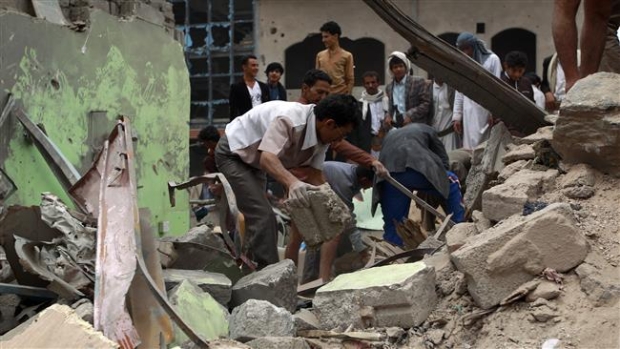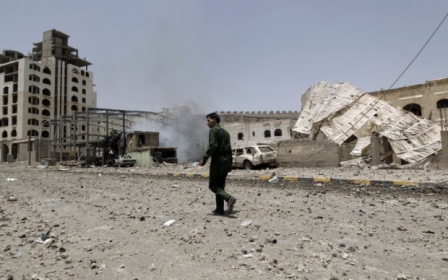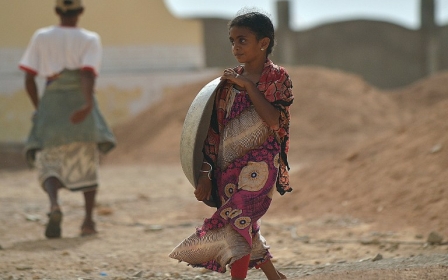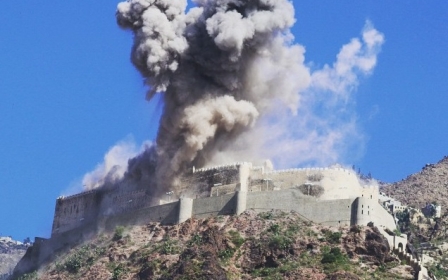Yemen on brink of starvation as truce collapses, say aid groups
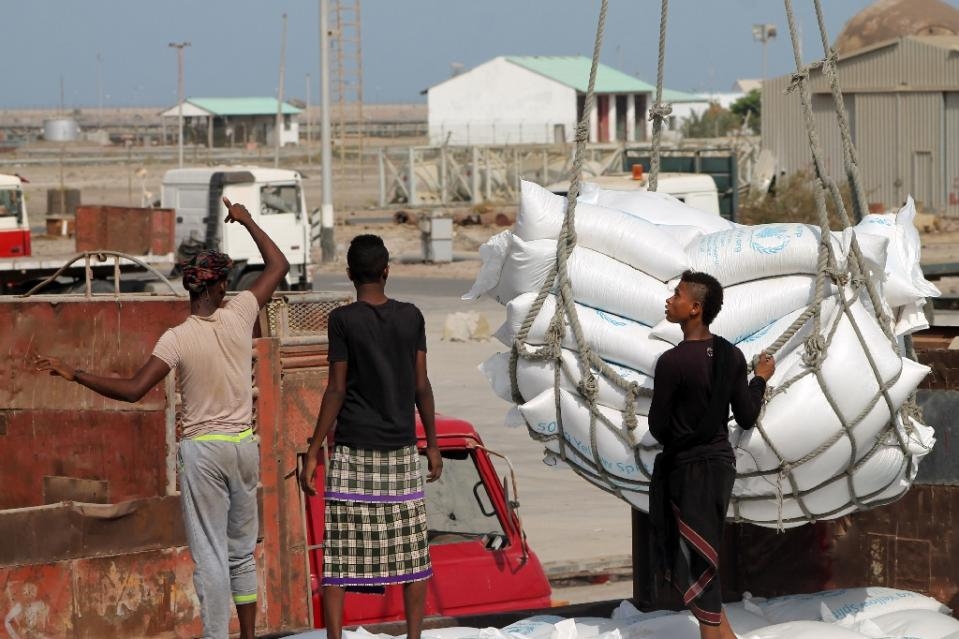
A humanitarian truce in Yemen has failed to take hold after the Saudi-led coalition resumed air raids on Tuesday against Houthis who were clashing with loyalists, military sources said.
The collapse of the desperately needed humanitarian ceasefire came as Oxfam warned that Yemen is now on the brink of starvation, with every second person struggling to find enough to eat.
The five-day truce that began on Monday was unilaterally declared by the pro-government Saudi-led coalition to allow the delivery of relief supplies.
But the coalition, which began its air campaign against the Houthis and their allies in late March, had said it reserved the right to strike in the case of any military movement by the group.
Airstrikes targeted Houthis north of Aden, Yemen's second city, most of which was recaptured by loyalists last week after four months of ferocious fighting, military sources said.
Raids also struck the group's positions in nearby Lahj province, where forces loyal to exiled President Abd Rabbuh Mansour Hadi have tightened the noose on the Houthis in the strategic Al-Anad airbase.
Three airstrikes targeted a Houthi convoy near Sabr, north of Aden, where loyalists had advanced over the past days, military sources said.
Saudi Arabia 'playing with fire'
Other raids hit a building occupied by insurgents in Jaawala - also north of Aden - and an overnight strike hit rebels in Marib, east of Sanaa, witnesses said.
Fighting around Aden has killed 28 people since Monday, among them 22 Houthis, two civilians and two pro-Hadi southern fighters, city health chief al-Khader Laswar said.
On Monday, coalition warplanes mistakenly hit positions of pro-government forces in Lahj, killing 12 people and wounding 30, military sources and witnesses said.
Iran's Deputy Foreign Minister Hossein Amir-Abdollahian on Tuesday accused Riyadh of stirring regional unrest.
"Saudi Arabia, by committing a strategic error in attacking Yemen, is playing with fire and today is playing with the ceasefire," Iranian state television quoted him as saying.
"The continued use of force in Yemen highlights the lack of security and promotes terrorism in the region," Amir-Abdollahian said.
Last week, coalition aircraft repeatedly struck two compounds housing the families of workers at the Mokha Steam Power Plant, killing 65 civilians, the New York-based watchdog Human Rights Watch (HRW) said.
HRW condemned such strikes as an "apparent war crime" on Tuesday, calling on the UN to investigate coalition strikes that hit residential areas.
"With no evident military target, this attack appears to be a war crime," said HRW senior emergencies researcher Ole Solvang.
Attacks on humanitarian workers
Ahead of the unilateral ceasefire, which took effect from midnight on Sunday, UN chief Ban Ki-moon made a plea for all sides to "agree to and maintain the humanitarian pause for the sake of all the Yemeni people".
The Houthis said they were not consulted about the truce.
Ambassadors from the UN Security Council's 15 member states were to hold consultations on Yemen later on Tuesday at a session due to begin at 2100 GMT.
Four months of fighting in Yemen have left 3,984 people dead, nearly half of them civilians, according to the UN.
According to Oxfam’s latest report on Yemen, the war has pushed an already poverty-stricken population to the point of collapse, with 2.3 million more people at risk of starvation since the bombing campaign began.
Yemen, which usually imports more than 90 percent of food needs, has been hit hard by a strict blockade.
“Since the start of the conflict, every day that goes by without a ceasefire and full resumption of imports sees nearly 25,000 additional people going hungry in Yemen,” said Philippe Clerc, Oxfam’s country director.
The International Committee of the Red Cross urged the warring parties on Tuesday to respect the safety of humanitarian workers, after two people were killed when a Red Crescent ambulance came under fire in the third city of Taiz.
"It is extremely worrying that the past couple of months have seen an increasing number of attacks against healthcare workers and relief personnel in the country," a statement said.
Johannes Van Der Klaauw, the UN humanitarian coordinator for Yemen, made an urgent appeal on Monday for humanitarian access, saying after visiting Aden that the city was "devastated".
"I repeat my plea to all parties of the conflict to put an end to the attacks on civilians and to end the destruction of critical infrastructure, vital for supplying essential goods and services to the civilian population," he said.
"The UN and its partners are committed to rapidly scaling up the humanitarian response effort across the whole of Yemen."
New MEE newsletter: Jerusalem Dispatch
Sign up to get the latest insights and analysis on Israel-Palestine, alongside Turkey Unpacked and other MEE newsletters
Middle East Eye delivers independent and unrivalled coverage and analysis of the Middle East, North Africa and beyond. To learn more about republishing this content and the associated fees, please fill out this form. More about MEE can be found here.


